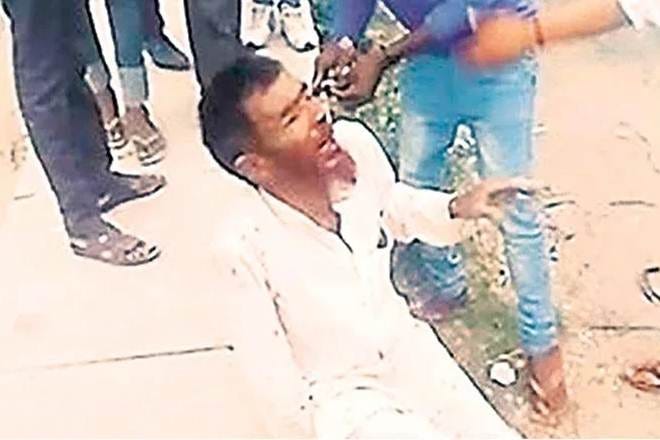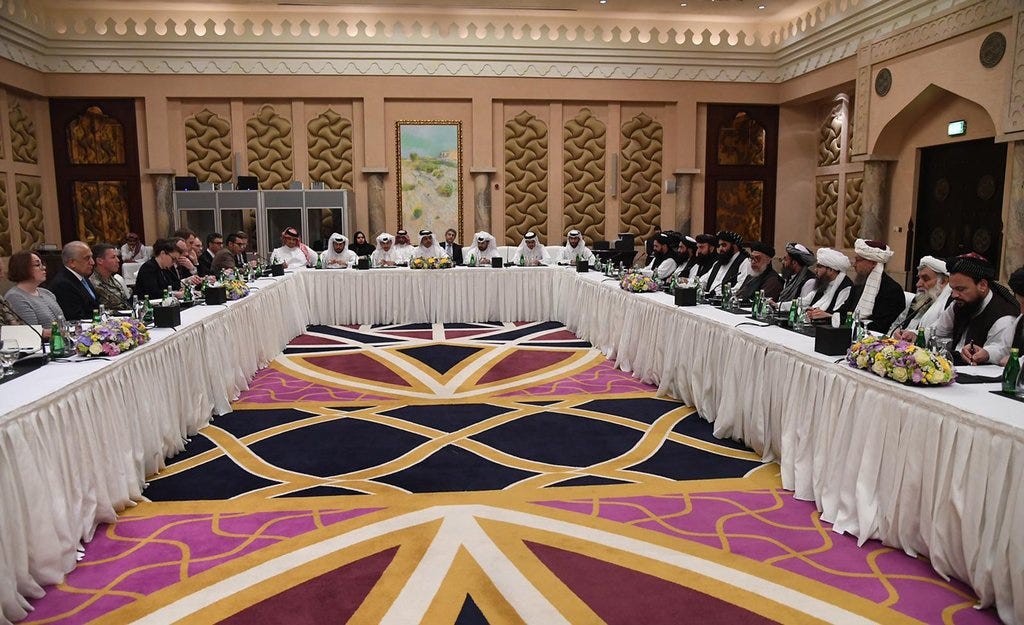Source: https://medium.com/@thinkingmuslim
Modi’s surprise actions in Kashmir after repealing Article 370 was influenced by a worldview that has seized India, Hindutva, a rabid form of nationalism that is built upon a grand conceit. For Hindu nationalists, Islam is the problem and its place in any future India is for it to be subdued, depoliticised and chastened by the power of the state and the braying of the mob. It is a necessary doctrine Modi has encouraged to create a direction for his country to provide purpose and meaning for what many Indian’s today call its historical moment. Modi has attempted to patch together a ‘grand narrative’ about the country, as he aspires to develop India into a regional power. Like most ultra-nationalists, focussing upon a perceived enemy within and an enemy next door enables a national sentiment for national progression. In this regard, Hindutva shares a lot with 1930’s European fascism.
Modi’s surprise actions in Kashmir after repealing Article 370 was influenced by a worldview that has seized India, Hindutva, a rabid form of nationalism that is built upon a grand conceit. For Hindu nationalists, Islam is the problem and its place in any future India is for it to be subdued, depoliticised and chastened by the power of the state and the braying of the mob. It is a necessary doctrine Modi has encouraged to create a direction for his country to provide purpose and meaning for what many Indian’s today call its historical moment. Modi has attempted to patch together a ‘grand narrative’ about the country, as he aspires to develop India into a regional power. Like most ultra-nationalists, focussing upon a perceived enemy within and an enemy next door enables a national sentiment for national progression. In this regard, Hindutva shares a lot with 1930’s European fascism.

The
mob lynching of Pehlu Khan, a 50-year-old dairy farmer from Rajasthan,
just north of New Delhi, caught on camera and uploaded to the internet
by those accused of murdering him may have horrified outsiders but in
India, his attackers have been lionised. His six killers were filmed
brazenly beating him to death whilst he pleaded for mercy. Last week,
they were acquitted of murder on a technicality, the video had not
apparently met the standards of forensic evidence. This was despite
countless witnesses, two of whom were his sons, also beaten, and despite
one of the assailants admitting to the murder to an undercover
reporter. Around 50 have been lynched in the last three years by the
so-called cow vigilantes, and hundreds have been injured.
My guest this week on The Thinking Muslim Podcast, Indian academic Fadl Hejazi, argues the impunity with which the killers conducted their mob justice was the certain knowledge that India’s state institutions would ultimately exonerate them. Since coming to office in 2014, Modi has systematically eroded the independence of state institutions. The judiciary, law enforcement, and civil administration have all been subverted by his call for national renewal and the need to chasten Muslims. Even more insidiously, this nationalism has created a media conformity that requires TV anchors and pundits to echo the message coming out of New Delhi or be branded as unpatriotic. The recent Pulwama and Balakot episodes just illustrates the length to which India’s media is ready to conspire with Modi.
My guest this week on The Thinking Muslim Podcast, Indian academic Fadl Hejazi, argues the impunity with which the killers conducted their mob justice was the certain knowledge that India’s state institutions would ultimately exonerate them. Since coming to office in 2014, Modi has systematically eroded the independence of state institutions. The judiciary, law enforcement, and civil administration have all been subverted by his call for national renewal and the need to chasten Muslims. Even more insidiously, this nationalism has created a media conformity that requires TV anchors and pundits to echo the message coming out of New Delhi or be branded as unpatriotic. The recent Pulwama and Balakot episodes just illustrates the length to which India’s media is ready to conspire with Modi.
Indian
politics has since partition been dominated by the Congress Party, the
party of its founder Nehru. This one-party domination collapsed in 1998
for a brief period when the BJP came to office and it seemed, for a
while at least, that a new two-party system would replace the monopoly
of Congress. When the BJP lost power in 2004 and Congress returned to
dominate Indian politics for a decade, such views seemed premature.
However, in 2014 under Narendra Modi, the BJP returned and today
dominates the Indian political scene, winning a landslide electoral
victory in April. This is in no small part down to both the Obama and
Trump administrations barely concealing their support for Modi. For the
Americans, the BJP government can be enlisted to side with it in its quest to counterbalance against its new global competitor, China.
This is why despite his obvious power grab in Kashmir, Modi is feted
around the world, moving from UAE to the G7 Summit in Biarritz, France,
posing with the so-called great powers. Not only does this embolden Modi
at home, but it also sends the clear signal that what happens in
Kashmir, in terms of state repression, imprisonment, disappearances and
worse is unimportant to powers that profess liberty for all.

The Afghan connection
The
Americans for their part have remained muted over Modi’s mob justice
and Kashmir land-grab. India’s strategic importance and that of the BJP
remaining in government supersedes any consideration for justice. As
discussed in our last programme,
in the short-term, the Trump administration sees mediation on Kashmir
conditional to full support from Pakistan over its Afghan dilemma. This
support, at least from the US’s perspective, has until now not been
genuine, accusing Islamabad of playing a double-game.
America’s
longest war may be coming to an end, at least that is the hope of the
Trump administration. For 18 years, the US has failed to bring the
Taliban to heel, oscillating between failed troop surges and periods of
diplomacy. The Bush administration began the war with grandiose notions
of regime change and democratic transformation only to be swallowed into
a quagmire about which most Americans had lost interest. When Obama
came to office, he announced a troop withdrawal and a drawdown of US
commitments as he attempted to refocus his attention to the Far East and
the emerging threat from China, his so-called ‘pivot to Asia’. However,
this intention to exit came with a troop surge, at one point 140,000
NATO ISAF troops were deployed to root out the militia group that had
fought a successful asymmetrical war. By 2014 Obama’s failure was clear,
the Taliban remained at-large and their power had not eroded. All Obama
could do was engage in a face-saving exercise and publicly withdraw,
rebrand the operation and keep a residual force of 9000 to supposedly
undertake ‘non-combat’ roles. This facade was soon exposed, as US troops
had to reengage, leading the Trump administration to accept the
inevitable, the only solution was to negotiate a way out. However, like
another failed war, Vietnam, it has to ‘leave with honour’.

The
American’s need Pakistan to bring all of the Taliban to the negotiating
table and critically, apply pressure on the militant group to negotiate
with the Afghan Ghani government. The Taliban thus far have flatly
refused to speak to Ghani, preferring the optics of negotiating with the
world’s superpower, without this the US presence in Afghanistan would
be shown to be what it, in reality, is, the real political force in the
country. Simply put, Trump needs the above two conditions to be met to
‘leave with honour’ and withholding diplomatic support to Pakistan over
Kashmir allows it to apply pressure upon Islamabad. Its hope is Pakistan
will get the message.
For
his part, Imran Khan has to play the role of the resolute leader,
taking to Twitter to castigate Modi and talking of Hindutva and
false-flag operations.
Together with a failed Security Council special meeting sponsored half-heartedly by China, calls to take India to the International Court of Justice and, bizarrely, an effort to suspend Priyanka Chopra as
a UN goodwill ambassador. These moves may play well to temporarily
pacify an enraged public but does little to address the real problem,
that of India’s occupation of Kashmir.
The Thinking Muslim Podcast can be downloaded on all Podcast Apps.
Comments